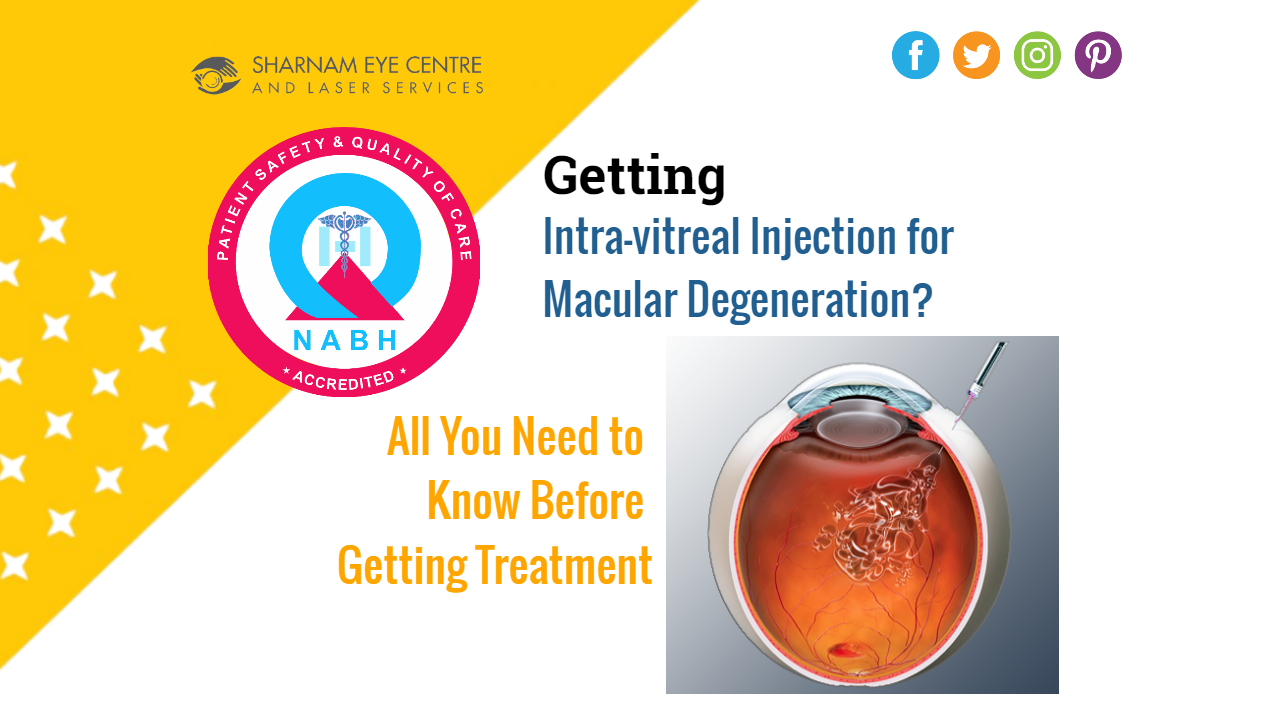Macular degeneration is not an uncommon eye disorder, primarily affecting the elderly. If you’ve been recommended an intra-vitreal injection as treatment, it’s essential to be informed. In this guide blog, we’ll walk you through everything you need to know about the procedure.
1. Understanding Macular Degeneration:
Macular degeneration, often referred to as Age-Related Macular Degeneration (AMD), affects the central portion of the retina called the macula. This disorder can lead to blurred or no vision in the center of the visual field. Early diagnosis and treatment are crucial for maintaining optimal vision.
2. What is an Intra-vitreal Injection?
An intra-vitreal injection involves injecting medicine directly into the vitreous, the jelly-like substance in the eye. This procedure delivers the medication right where it’s needed, targeting the affected retina areas.
3. Why Opt for Intra-vitreal Injections?
For certain forms of AMD, notably the wet form, intra-vitreal injections of anti-VEGF medications can slow the disease’s progression. These injections can:
- Reduce swelling
- Limit the growth of abnormal blood vessels
- Improve or stabilize vision
4. Preparing for the Procedure:
Before the injection:
- Your eye will be cleaned and numbed
- You might undergo an Optical coherence tomography (OCT) scan or Angiography to determine the retina’s status
5. Aftercare and Recovery:
Post-injection, you may experience:
- Mild discomfort or a gritty sensation
- Temporary eye redness
It’s vital to follow your doctor’s aftercare instructions and watch for signs of infection or complications.
6. Potential Side Effects:
Though intra-vitreal injections are generally safe, some potential side effects include:
- Eye pain or redness
- Floaters
- Increased eye pressure
- Infection
7. How Often Are Injections Needed?
The frequency of injections depends on the medication used and your eye’s response. There are several injections available like Razumab, Accentrix, Pegenex, Eylea , your Retina specialist will choose the best suited for your retina condition . These injections are given based on a protocol which can be tailored as per patients need and condition . You must discuss all the aspects before the treatment is initiated . Some patients might need monthly injections, while others might require less frequent treatments. Since some patients may require more injections to stabilize the disease process one must be patient and keep discussing his condition and treatment outcomes on follow up visits .
8. Cost and Insurance:
Sone newer Intra-vitreal injections can be expensive. Ensure you check with your insurance provider about coverage and co-payments. Financial assistance programs might be available to help with costs . Your retina specialist will help you in choosing the right treatment for you and also help in tailoring the treatment based on your condition and need .
Being informed is your best defense against macular degeneration. An intra-vitreal injection can be an effective treatment, but it’s crucial to understand the procedure, its benefits, and potential risks. Always consult with a Retina specialist or an trained ophthalmologist to discuss your options and get the best care for your eyes.
Disclaimer: This content is for informational purposes only and should not replace professional medical advice, diagnosis, or treatment.



